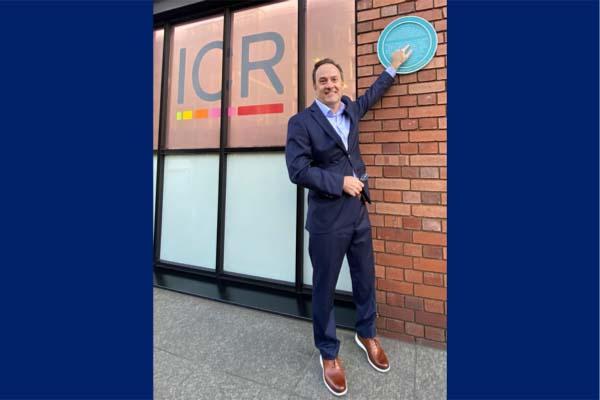
In December 1995, the work of over 40 researchers culminated with a landmark publication in Nature. The team had discovered a second breast cancer susceptibility gene: BRCA2. Their discovery revolutionized cancer research and screening in breast, ovarian, and prostate cancers and has impacted millions of people’s lives in the years since.
One member of that team was Simon Gregory, PhD, professor in neurosurgery, neurology, and molecular genetics and microbiology at Duke. “I was constructing physical maps as part of the Human Genome Project at the Wellcome Trust Sanger Institute,” Gregory said. “The large insert cloned map of the BRCA2 region formed part of my PhD thesis.”
Earlier this year, just after the 25th anniversary of the discovery of the BRCA2 gene, that team of researchers was honored during an unveiling of two commemorative plaques in London. One of the plaques was placed at the laboratories of The Institute of Cancer Research, London, where part of the research was funded.
“The impact of discovering the BRCA2 gene cannot be understated,” Gregory said. “It is incredibly important for the diagnosis of inherited familial breast cancer and centrally important to healthcare decisions made by individuals and their families.”
Being part of that research team left a lasting impression. “It isn’t something that I speak of often,” Gregory said, “but it is probably one of my most proud achievements. It was the first time that I appreciated the broader impact of my own research on people’s lives.”
Read more news from the Precision Genomics Collaboratory
